Civil Liberties, Criminalizing Dissent, Habeas Corpus, Human Rights, Prison Industry, Surveillance, Torture, Truth to Power
Podcast: Play in new window | Download
Updates:
- FISA Court Surveillance: Supreme Court Allows, You Have No Standing
- Hosts Discuss CIA Sponsored Cinema
——–
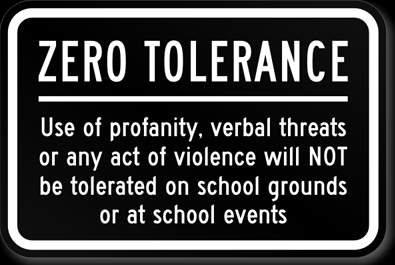
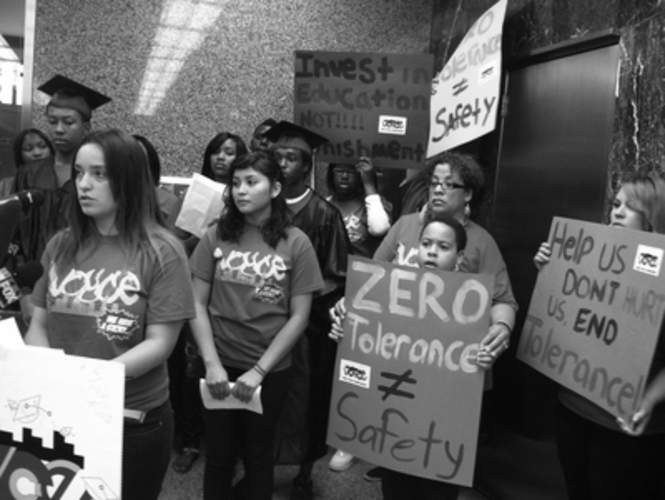
Zero Tolerance Policy: School to Prison Pipeline?
As many listeners may know, zero-tolerance school policies will punish any infraction of a rule regardless of whether it was an accident, a violation out of ignorance or extenuating circumstances. Schools normally forbid cell phones, profanity etc, but with a zero tolerance policy, breaking these rules often result in an inordinately harsh punishment such as suspension or expulsion. These policies are promoted to prevent violence and drug abuse in schools but for years critics have pointed out the subjective nature of these decisions on certain students with disciplinary problems. Some difficult students could become targets of the zero tolerance policy, become less educated by multiple suspensions and expulsion which often lead them into the criminal justice system.
Professor Russ Skiba:
- Zero tolerance grew out of a philosophy of school discipline that really came out of the 1980s, a period where we believed because youth violence was accelerating in our communities, that we were in real danger of being overwhelmed by violence in school settings.
- Interestingly enough data since then has shown us that was never really the case.
- Rates of disruption in schools have remained constant in a 30 or 40 year period.
- Out of that fear grew a response that said the only way we’re going to defend against that and keep our school safe and our students and teachers safe will be by punishing harder and frequently minor incidences we can send a message to kids that certain behavior won’t be acceptable and that will deter other kids.
- Zero Tolerance came out of Broken Windows Theory.
- The Reagan administration used a program in the San Diego harbor where even trace amount of drugs would lead to confiscation of ones boat and an appearance in federal court.
- When there’s a fear response, there does tend to be a belief that we don’t have time to look at the data we just need to do anything necessary to protect out kids.
- Its a dangerous way to make policy.
- The case in Georgia where a girl has a Tweety Bird wallet attached to her backpack with a two inch chain. That was considered a weapon. We all react in horror to those extensions.
- But the more central question is. . . is it effective?
- The APA put together a Zero Tolerance Task Force and they found after a year of studying hundreds of documents that there was no evidence that Zero Tolerance made any contribution to school safety or improvements to student behavior.
- It’s often referred to as the school to prison pipeline. In the last few years there has been a lot of data accumulating that yes in fact that’s the case.
- It’s not a direct line, but there are a lot of links there that kids that are expelled are more likely to be disengaged.
- It has a negative correlation with school achievements.
- We’ve known for a long time that African American students are disproportionately represented.
- Race is still a contributor to disproportionality. Poor black kids are more likely to be suspended than poor white kids but so are middle class. . .
- More African Americans in the school tends to lead to harsher punishment.
- More teachers of color seems to result in reduced rates of disparities.
- We (need) to put programs in place like “conflict resolution” or “positive behavior support” that make clear the expectations for all kids.
- Or mentoring, we know a lot of these situations come from kids who are alienated from school.
- APA Zero Tolerance Task Force / Equity Project – Indiana University / Civil Rights Project – UCLA
Guest – Professor Russ Skiba, professor in Counseling and Educational Psychology at Indiana University, and directs the school outreach practicum in the School Psychology Program. He was a member and the lead author of the American Psychological Association’s Task Force on Zero Tolerance
———
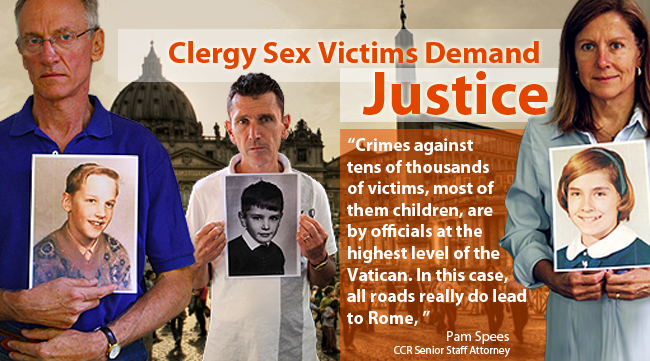
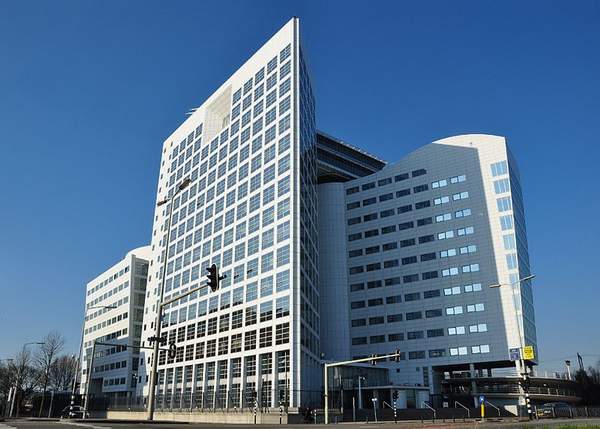
Pope’s Resignation May Make International Prosecution Easier
We continue to look at accountability within the church for widespread systematic sexual assault and violence against tens of thousands of victims, mainly children. As many listeners may know, the church’s main priority has been to protect itself and its power instead of insuring the protection of the children in the church and others vulnerable to abuse by priests. The pope is responsible for these criminal acts with direct involvement in covering them up. Now that Pope Benedict XVI is resigning, international prosecution will be easier for national systems of justice. The Center for Constitutional Rights has filed a case with the International Criminal Court on behalf of the organization Survivors Network of those Abused by Priests (SNAP) against the pope and other high-level Vatican officials for crimes against humanity in September 2011 and provided additional documentation in the case in April 2012. The prosecutor is currently reviewing the evidence
Mary Ward Caplan:
- SNAP is a network of survivors who try to help each other with the experience of being either raped, abused, or sodomized by authority figures.
- I think one of the wonderful things that have happened is there is more attention toward this.
- There was a time when print journalism wouldn’t touch the church. They were really able to act under secrecy.
- When I was abused it was the 60s and my father was dying and the priest suggested that if I did certain things a miracle might be wrought.
- After my father died and the miracle wasn’t wrought, I understood more of what was done and tried to go to pastor of the local church.
- There were no places I knew of to turn.
- Eventually I got therapy, I married, I got children.
- What happened in 2002 in Boston, was really the thing that made me become an activist.
- The court is looking at this very seriously, they met with us. This is a court that doesn’t have immunity.
- What I would like to see is accountability and some sort of change that this will not happen again.
Guest – Mary Ward Caplan, leader of Survivors Network of those Abused by Priests (SNAP) in New York City.
———-
Attorney Pam Spees:
- In September 2011, we filed a complaint with the prosecutor of the International Criminal Court, asking to investigate and prosecute 4 highest officials for their role in basically creating the policies and practices that church officials follow around the world, which serves to conceal the widespread sexual violence against children and vulnerable adults.
- Other than conceal, these policies and practices serve to perpetuate it.
- We filed these complaint along with 22 thousand pages of documentation and evidence that’s been gathered in different countries around the world – showing how the high level officials within the Vatican are involved. We’re asking for a criminal investigation and prosecution.
- His resignation does create more opportunity for holding him accountable, specifically in national levels where you have a sitting head of state could actually be a bar to a prosecution for a civil case.
- It’s important to understand we’re not talking about a few bad apples. It is the culture of sexual violence that has built up within the church.
- I think what we’re going to be seeing in the next months is more revelations.
- The committee has ordered the Holy See to report to it this year. This will be the first time an international body with any kind of oversight over the Holy See will be making the Holy See answer questions about the crisis of child sexual abuse in the Holy Church.
Guest – Pam Spees, senior staff attorney in the international human rights program at the Center for Constitutional Rights. She has a background in international criminal and human rights law with a gender focus, as well as criminal trial practice. She serves as lead counsel on several of CCR’s cases and initiatives including, Sexual Minorities Uganda v. Lively, a case brought against a U.S. based anti-gay extremist for his role in the persecution of LGBTI people in Uganda; Murillo v. Micheletti, a case brought by the parents of a youth killed by the coup regime in Honduras; and in the legal effort to hold Vatican officials criminally responsible for the crimes against humanity of rape and sexual violence within the church.
——————————————————————————-
Civil Liberties, Criminalizing Dissent, FBI Intrusion, Habeas Corpus, Human Rights, Political Prisoner, Prison Industry, Supreme Court, Surveillance, Torture
Podcast: Play in new window | Download
Updates:
—-
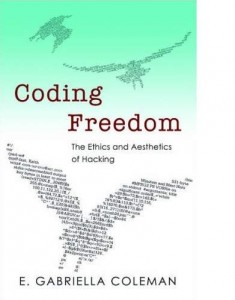
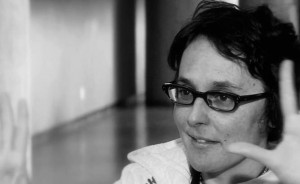
Coding Freedom: The Ethics and Aesthetics of Hacking
In the past 2 years, we’ve discussed in many interviews and updates, the attacks on whistle-blowers and hackers. The emerging movement of programmers, hackers, open source software, online communities has challenged and exposed corporate and government control and surveillance, making them targets of prosecution. As many may know, our own Michael Ratner has represented whistle-blower Julian Assange, computer activist Jeremy Hammond, and has been a legal adviser to many others including the late Aaron Swartz. Today we talk with author Gabriella Coleman about her recently published book Encoding Freedom: The Ethics and Aesthetics of Hacking. It’s a good place to start for those learning about the political significance of free software, intellectual property and the morality of computer hacking.
Gabriella Coleman:
- When you utter the word hacker, usually the image that pops into people’s minds is nefarious criminal. That can be the case but really hackers are composed of an extremely lively group of individuals who tend to be computer programmers and network administrators, who actually are committed to a range of civil liberties such as free speech and privacy. Especially in the last decade they’ve been involved in political activities as well.
- They’re quite a bit of diversity among hackers, technically.
- Hackers – are keenly aware of the issues such as censorship, which impact the present and the future of the internet. Some hackers are committed to insuring internet freedoms for their own productive autonomy.
- Beyond productive autonomy they’re really starting to care about the broader issues relating to internet freedoms and how they relate to democracy at large.
- In order for software to be made, it must be written in a programming language such as C++, Python and Pearl and its written in source code. These are the underlying directions of software.
- A very prominent group of hackers who are committed to always having access to source code have actually reinvented the law to make sure that that source code is eternally available. They’re very much against copyrights and patents and have created something called a copyleft to make sure the source code that powers software is always accessible to them.
- Proprietary software such as the Microsoft Operating System is behind lock and key. We don’t have access to the underlying directions.
- There’s a contingent within the hacker world who believe that access is not only good for the sake of improving technology but is the morally right thing to do.
- That its a collaborative process, that everyone should have access to it. There are other hackers that are a little less concerned about the ethics of access and they’re more concerned about the pragmatics.
- I originally thought that these free software developers who were part of these large projects such as Debion, were raging Leftists. The project itself had collected people from all political orientations.
- Anonymous is a digital phenomena somewhat composed of hackers but not exclusively so, who has engaged in an enormous amount of political activities. They are innovating in the realm of direct action related to digital protest.
- Some will engage in hacking to get information about corporate corruption to leak to the world at large. They also engage in distributed denial of service attacks where a website is so overloaded with requests it comes off line.
- Free software, in order for it to be free speech is also like free beer, you have to make the source code available. But that doesn’t stop people from charging money for support or services.
- In the case of SOPA being passed, there was massive outcry, and massive organization to do something about it to stop it in its tracks. It came from different quarters of society, it came from corporate giants such as google, it came from the Electronic Frontier Foundation, and there was a huge black out where people took down their websites. It had a massive effect and stopped it in its tracks.
- I’m currently working on a book on Anonymous. That should be definitely done by 2013.
Guest – Gabriella Coleman, Wolfe Chair in Scientific and Technological Literacy in the Art History and Communication Studies Department at McGill University. Trained as an anthropologist, she researches, writes, and teaches on hackers and digital activism. Her first book on Free Software, “Coding Freedom: The Aesthetics and the Ethics of Hacking” has been published with Princeton University Press. It is available for purchase and you can download a copy on here.
—-
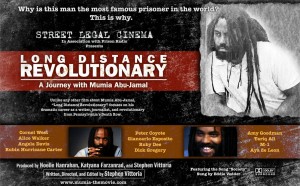
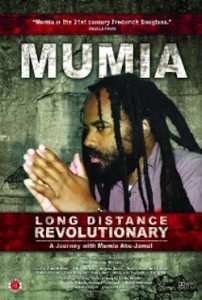
Long Distance Revolutionary: A Journey with Mumia Abu-Jamal
The new documentary, “Long Distance Revolutionary: A Journey with Mumia Abu-Jamal,” is premiering across the country. The film includes interviews from Cornel West, Alice Walker, Ruby Dee, Dick Gregory, Amy Goodman, Michael Parenti, writers Tariq Ali, and Michelle Alexander. This film beautifully captures the importance of Mumia Abu-Jamal’s life as an American journalist, and radical. He published seven books in prison including the best selling “Live From Death Row.”
In Chris Hedges’ review he points out what Cornel West says in the film: “The state is very clever in terms of keeping track, especially [of] the courageous and visionary ones, the ones that are long-distance runners. You can keep track of them, absorb ’em, dilute ’em, or outright kill ’em—you don’t have to worry about opposition to ’em.”
Steve Vittoria:
- The arc of Mumia’s life and the body of his work which is remarkable under harsh and draconian conditions is much more than December 9, 1981. I’ve always seen his life as more than one moment.
- I wanted to tap into what I found was clearly a unique story. Here’s a young man who early on realized he was a revolutionary by the time he was 15 years old.
- He’s writing remarkable work for the Black Panther Party and their newspaper. By 26, he’s a vibrant radio broadcaster and journalist in Philadelphia, reaches NPR and All Things Considered.
- After incarceration, he publishes 7 or 8 books.
- I did from a creative standpoint and a very practical standpoint.
- I wanted to tell a really good story. Any filmmaker, that’s job number one. Mumia, you just have to turn the camera on and you can tell a great story.
- If the film starts to win awards and get fawned over then something’s wrong.
- My favorite interview in the film is Mumia’s sister Lydia Barashango who unfortunately passed away a few months after we interviewed her from her bout with cancer. She went to great lengths to secure her baby brother’s legacy.
- Trying to find what it was like as a young African-American kid growing up in one of the great racist northern cities of Philadelphia, what it was like
- I didn’t realize how funny he could be. He’s kind of a science fiction nerd. He calls himself a nerd.
- Mumia has a very strict schedule for work.
Guest – Steve Vittoria, the writer, director, producer and editor of Long Distance Revolutionary: A Journey with Mumia Abu-Jamal. The film premiered in theaters in New York City earlier this month.
—————————————
Civil Liberties, Gaza, Habeas Corpus, Human Rights, Surveillance, Targeting Muslims, Torture, Truth to Power, Uncategorized
Podcast: Play in new window | Download
Updates:
—
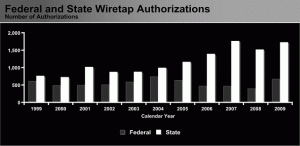

Senate Votes To Extend Warrantless Wiretaps For Five More Years: No Oversight, No Transparency
Days before 2012 drew to a close, the U.S. Senate voted 73-23 to reauthorize the FISA Amendments Act of 2008 for five more years. This is the unconstitutional spying bill that violates the Fourth Amendment and gives vast unmonitored authority to the National Security Agency to conduct dragnet surveillance of American’s’ international emails and phone calls.
Michelle Richardson:
- The Senate took up the FISA Reauthorization Bill right at the end of the year and they did consider a handful of very moderate amendments that wouldn’t have actually interfered with the collection of information but would make it more transparent to Congress.
- In an open and free democracy there should be no secret law.
- The original FISA was much more targeted. It required a more traditional probable cause, finding an individualized warrant before you could go up and tap a phone.
- After 911 Congress started systematically lowering the standard for obtaining this information.
- They made it easier so you could go around the court, and do it administratively.
- They lowered the standard so there’s no longer a probable cause. The FISA Amendment Act is probably the biggest change in the last decade.
- You no longer have to name who you’re going to tap, the phone number or stated facility.
- Instead we’re going to do these programmatic orders so the court is no longer involved in deciding who will be tapped.
- I’m not going to tap a specific American, but I want information about Yemen.
- Theoretically this isn’t turned into the United States at any specific person. We think its being used for bulk collection.
- The way the internet works now, sometimes your communication will travel around the world before landing next door.
- A lot of times the equipment is intentionally built so the government can tap directly into the system.
- FISA – Foreign intelligence which includes the undefined national defense of the United States.
- I think there is reason to believe this is a self correcting situation and that people will start looking at this technology and understand more about what’s out there.
Guest – Michelle Richardson is a Legislative Counsel with the ACLU Washington Legislative Office where she focuses on national security and government transparency issues such as the Patriot Act, FISA, cybersecurity, state secrets and the Freedom of Information Act. Before coming to the ACLU in 2006, Richardson served as counsel to the House Judiciary Committee where she specialized in national security, civil rights and constitutional issues for Democratic Ranking Member John Conyers.
—
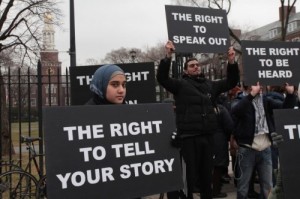

Boycott Divestment Sanction Controversy At Brooklyn College
Last month, a backlash of controversy erupted after the announcement of a student group at CUNY’s Brooklyn College, Students for Justice in Palestine will host two speakers who will discuss their views on the BDS movement. The BDS movement as many listeners may know calls for boycott, divestment and sanctions against Israel in protest of the government’s oppressive policies toward the Palestinian people. The speakers are Palestinian BDS advocate Omar Barghouti and University of California Berkeley philosopher and BDS supporter Judith Butler. The event was co-sponsored by numerous student and community groups, as well as Brooklyn College’s political science department.
The backlash included a threat by New York City Council members and Congressman Jerry Nadler to defund Brooklyn College and opinion pieces by Harvard Law Professor Alan Dershowitz who called the event a “propaganda hate orgy,” another daily newspaper labeled it “Israel-bashing.
Omar Barghouti:
- Specifically the BDS call said that Israel and institutions and corporations that are complicit in Israel’s violations of International Law should be boycotted, divested from and eventually sanctioned in order to achieve the 3 basic rights of the Palestinian people under International Law.
- Ending the occupation of 1967, which include the illegal colonies, the wall, ending the system of discrimination within Israel itself which meets the UN definition of apartheid, the third is the right of return for refugees which is their basic inalienable right under international law.
- In order to achieve these 3 basic rights, we absolutely need international solidarity as was done in the anti-apartheid movement in South Africa, we can’t do it alone.
- Your tax money is funding Israel occupation and apartheid. You have an obligation to question where your money is going to and how its being used to oppress us.
- I think that the New York Times editorial supported having a debate at Brooklyn College says it all. We could have never imagined such a thing, a year ago.
- The government of South Africa’s ruling party the ANC endorsed BDS this last December.
- Many Jewish groups have joined BDS campaigns and are leading BDS campaigns.
- Bullying is one thing and response from critics is another. We’re very open to debate but no one would debate us.
- They’re running scared of debate.
- Not every event, every talk has to be balanced.
- The balance is overall. Those accusing this panel of being imbalanced themselves like Dershowitz, always speak solo, unopposed, espousing the most extreme ideas like torture, a war crime.
- They’re twisting the very definition of academic freedom.
- Human rights are difficult. If you have a master slave relationship and the slave insists on freedom and nothing less than freedom that upsets the order.
- Did equality in Alabama delegitamize whites? It delegitamized apartheid in the South.
- We’re delegitamizing the Israel’s occupation, apartheid and denial of Palestinian rights. We’re insisting on our rights. We’re not delegitamizing any people.
- We’re delegitamizing an order that’s illegal by definition. Apartheid is illegal. Occupation is illegal. Building colonies on occupied territories is illegal. Ethnic cleansing is illegal.
- It’s not a blanket boycott against every company that’s complicit because that wouldn’t work.
- BDS is about context sensitivity, graduality and sustainability.
- You’ve got to address the most sinister companies as it were. The most seriously involved in human rights violations and move toward others, to teach others a lesson.
- There’s a big campaign against soda stream led by an Interfaith coalition because Soda Stream is manufactured in an illegal settlement in the occupied territories.
- We need coresistance, not coexistance until we end oppression.
- www.BDSMovement.net / www.PACBI.org
- www.WhoProfits.org
- Dissent and any argument against Israeli policies is almost becoming illegitimate in this country. It’s a new McCarthyism that the Israeli lobby is leading.
Guest – Omar Barghouti, the founding member of the Palestinian Campaign for the Academic and Cultural Boycott of Israel and the Palestinian Civil Society Boycott, Divestment and Sanctions (BDS) campaign.
Listen to Law and Disorder May 2011 Show with Guest Omar Barghouti
———————————————————-
CIA Sponsored Terror, Civil Liberties, Criminalizing Dissent, FBI Intrusion, Habeas Corpus, Human Rights, Military Tribunal, Political Prisoner, Surveillance, Targeting Muslims, Torture, Truth to Power
Podcast: Play in new window | Download
Updates:
——
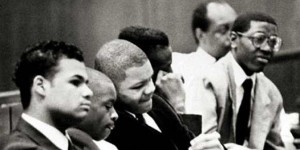
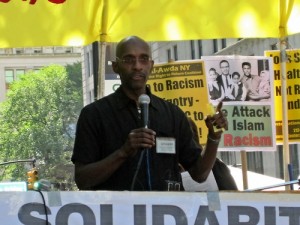
Central Park Five Civil Suit
On April 19, 1989 a group of five black and Latino teenagers were arrested and convicted for the brutal rape of a white female jogger in Central Park, New York City. It was one of the highest profile criminal cases in the city. A New York court overturned the convictions of the five teenagers after a serial rapist confessed to the crimes. By this time of this confession, the five defendants had already served sentences of 7and 13 years. Now, the city of New York is refusing to settle a $250 million decade-long federal civil rights suit brought by the defendants. Attorney Roger Wareham talks more about the case and the Ken Burns documentary on the Central Park Five that could provide footage for the federal civil lawsuit.
Attorney Roger Wareham:
- I’m part of a team of lawyers among five firms that represent the five defendants.
- She almost died. She lost 75 percent of the blood in her body that night.
- The police at some point arrested 30 youths who had allegedly been in the park earlier that night. Some of them were charged with attacking people jogging in the park.
- Most of them had been released, these five were in custody.
- Maybe four or five hours after they were arrested the police received word of this woman who was near death.
- So they held these five children for questioning which basically became and interrogation, which basically became a coerced false confession where each one of them implicated the other ones in the rape and attack of this woman.
- Even though none of them knew each other or what actually happened because they didn’t do it, they just wanted to go home.
- By the time the parents became part of the process, the false statements had already been elicited.
- Especially when a black man is a accused of touching, raping a white woman, logic, justice, objectivity, evidence goes out the window and there’s a presumption of guilt.
- They went to trial and were convicted even though there was no forensic evidence.
- Once they were released from prison they had to register as sexual predators.
- Thirteen years after their conviction, the person who actually committed the crime came forward and admitted he’d done it.
- He was arrested after a failed attempt at a rape. There was an m.o. that he employed with the rapes that he conducted.
- I’m part of a political organization called the December 12 Movement.
- Manhattan’s District Attorney’s office had done a very thorough investigation and this is the same office that had prosecuted them.
- They put forth a really damning affirmation in support of our motion basically admitting they had prosecuted the wrong people, errors had been made. It was clear that the one and only perpetrator was Mateas Raes and they were not going to retry the case.
- Their convictions were overturned 10 years ago, in December 2002.
- Why hasn’t it been settled? You look to Police Commissioner Kelly who endorsed the report.
- Subpoenaing the outtakes is a reflection of their desperation. See, they know the truth. They’re floundering around looking for different straws to grab at.
- Contact the December 12th Movement directly at 718-398-1766.
Guest – Attorney Roger Wareham is a lawyer and political activist of over four decades. He is a member of the December 12th Movement, an organization of African people which organizes in the Black and Latino community around human rights violations, particularly police terror. Wareham is also the International Secretary-General of the International Association Against Torture (AICT), a non-governmental organization that has consultative status before the United Nations.
Since 1989, he has annually presented evidence of human rights violations facing people of color in the United States and other parts of the world at assemblies of the United Nations’ Human Rights Council (formerly the Commission on Human Rights) and its other bodies that meet in Geneva, Switzerland. His work was instrumental in having Mr. Maurice Glele, the U.N. Special Rapporteur on Racism, Racial Discrimination, Xenophobia and Related Intolerance; conduct the first U.N. investigation of the United States in history. Roger Wareham was an active organizer of and participant in the United Nations’ World Conference against Racism held from August 30 – September 7, 2001 in Durban, South Africa.
———————————————————————————
CIA Sponsored Terror, Civil Liberties, Criminalizing Dissent, Habeas Corpus, Human Rights, Torture
Podcast: Play in new window | Download
—-
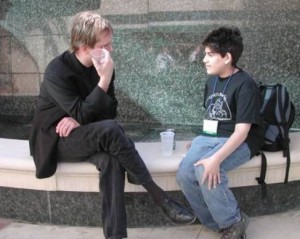
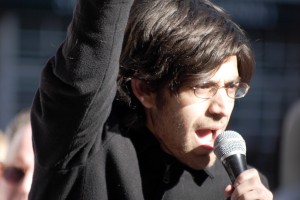
Remembering the Life and Influence of Aaron Swartz
Last week, computer activist and programmer Aaron Swartz allegedly took his own life. Swartz as many listeners may know helped develop RSS, essentially revolutionizing how people use the internet and was the key architect of Creative Commons. He believed information should be free and used his tech-saviness to promote his views. Many blame his unnecessary death on the stress of being the target of federal prosecutors who went after him for covertly downloading millions of public domain academic journals on the MIT campus using a non-profit university research portal. It’s unclear if Swartz broke any laws, MIT provided free access to anybody on campus including visitors without campus affiliation. Swartz has had run ins with the law before in connection with hacktivist activity and would’ve faced a 35 year sentence. Petition to remove US District Attorney Carmen Ortiz from office.
Karl Fogel:
- He’s portrayed as a technical whiz kid, a genius who knew how the internet worked.
- He was a very precocious and very technically adept person who started doing significant work on internet standards and access to information and moving information around communication networks at the age of 13.
- They didn’t know he was 13 until they held an in person conference.
- No one knew he was a kid, he was so widely read and very able to express himself.
- He was a very good organizer of people who were themselves.
- Aaron helped develop this standard. RSS – Really Simple Syndication Format is a means of having a website notify people via an efficient and timely information push mechanism.
- Stop Online Piracy Act, a clampdown on websites that provide access to information in ways that terms of service or restrictive laws in Aaron’s opinion don’t permit.
- Creative Commons is another organization that promotes much loser and more permissive copyright regulations and gives authors and creators of content tools like more liberal licenses to release their content under.
- All of these things he did have one thing in common, giving people access to knowledge.
- Information that is often artificially restricted.
- The wires of the internet are perfectly willing to carry any piece of information. When they don’t its because a human has decided we’re going to block access.
- He’s talking about access to scholarly articles that were funded by tax payer dollars.
- You can think of Reddit as a kind of early facebook in that it gave people an online surface to share conversations on the internet.
- Demand Progress that Aaron helped start that organized a massive protest around SOPA, the Stop Online Piracy Act.
- He was intensely collaborative. He was often an engine of what was moving.
- Questioncopyright.org is founded to change the way the debate of copyright law and copyright practices happen.
- If you talk to people about copyright, they say artists have to make living. People shouldn’t steal stuff.
- It’s not about attribution. It was instituted initially as a regulation to help support the publishing industry and was lobbied for by the publishing industry 300 years ago.
- Aaron understood that and understood that poor frames of debate was causing us to have increasing restrictive laws in an age where we have this gigantic worldwide copy machine.
- CFAA, two parties sharing information with each other, it criminalizes that.
- He was always referred to as a hacker, meaning someone who breaks in and does damage to computers. That’s inaccurate. What these laws say is someone knowingly uses a computer network to use someone else’s server in a way that that person didn’t intend. In other words if you violate terms of service. Everyone clicks through.
- Making criminalized and punishable by jail is ridiculous.
- He was opposed to artificial scarcity. It bothered his sense of justice that we were behaving as if there was a scarcity. It was always portrayed as young hacker steals computer files from MIT.
- What the facts of the case are, he wanted to download a lot of articles from JSTORE. These are articles were available for free. However they put a limit on how many you can download from a given address and time.
- He found a tactical way to work around it by getting into a network closet and using a computer that changes its network address. Yes, he engaged in very mild, non-malicious subterfuge.
- Alex Stamos article: The Truth About Aaron Swartz’s Crime
- He was doing research on the effects of funding on academic research. He wanted to do it in a big data approach.
- He needed these millions of articles in order to write programs to parse them and look for conclusions and funders to do a gigantic database.
- It makes me angry that they (prosecutors) knew what they were doing, they knew what Aaron’s intentions were.
- Their careers should be over. I know that’s cruel to say, but they should go no further.
- I wrote that there might have been something illegal about it but its a bad law.
- Acting for Aaron and Open Access – Adi Kamdar
Guest – Karl Fogel co-founded Cyclic Software in 1995, a company offering commercial CVS support. In 1999 he added support for CVS anonymous read-only repository access, inaugurating a new standard for access to development sources in open source projects. That same year, he wrote Open Source Development with CVS (published by Coriolis), now in its third edition via Paraglyph Press. He has also written Producing Open Source Software, from O’Reilly Media. From 2000-2006, he worked for CollabNet, Inc., managing the creation and development of Subversion, a open source version control system meant to replace CVS as the de facto standard among open source projects. After a brief stint at Google in 2006 as an Open Source Program Specialist, he left to become editor of QuestionCopyright.org. He also participates in various open source projects as a module maintainer, patch contributor, and documentation writer.
—-
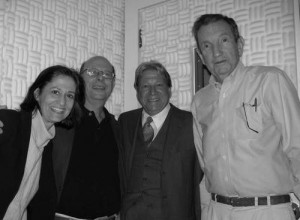
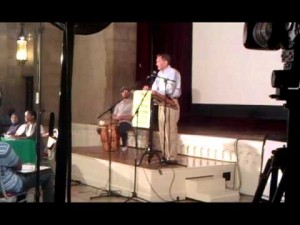
Speech by Former Attorney General of the United States Ramsey Clark
We hear speech delivered by Ramsey Clark at Riverside Church in Harlem celebrating his 85th birthday. Ramsey Clark is a former Attorney General of the United States, under President Lyndon B. Johnson. The first Attorney General at the Justice Department to call for the elimination of the death penalty and all electronic surveillance.
During his years at the Justice Department:
After he left the Johnson administration, he became a vociferous critic of the Vietnam War and continued on a radical path, defending the underdog, defending the rights of people worldwide, from Palestinians to Iraqis, to anyone who found themselves at the repressive end of government action.
Past Law and Disorder Interviews with former US Attorney Ramsey Clark:
————————————————————————–
Afghanistan War, CIA Sponsored Terror, Civil Liberties, Criminalizing Dissent, Extraordinary Rendition, FBI Intrusion, Guantanamo, Habeas Corpus, Human Rights, Military Tribunal, Political Prisoner, RFID, Surveillance, Targeting Muslims, Torture, War Resister
Podcast: Play in new window | Download
Updates:
- Guantanamo Bay Prison 11th Anniversary
- Abu Ghraib Settlement: Defense Contractor Engility Holdings Pays $5M To Iraqi Torture Detainees
- Stop and Frisk Lawyers Praise Decision Finding NYPD Stops Unconstitutional
- Bradley Manning Case: Judge Gives 112 Days of Sentence If Convicted
- Law and Disorder Tip of the Hat: New Yorkers Respond to Hateful Subway Ads & Declare Them War Propaganda
- In Memory of Adnan Latif, A Cleared Guantanamo Detainee Who Was Found Dead In His Cell
—–
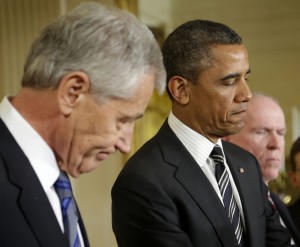

Obama to Nominate John Brennan, ‘Kill List’ Architect, as New CIA Chief
As many listeners know, President Barack Obama has nominated John Brennan as director of the CIA. Brennan is currently Deputy National Security Advisor for Homeland Security and Counterterrorism. In this capacity Brennan meets with the president daily and is governed the administration’s program of extrajudicial assassinations known as the “kill list.”
In 2011 and 2012, Brennan used his position to “re-organize” the process by which people outside of war zones were put on the list of drone targets. Basically, this “reorganization” gave the White House the power to secretly determine who would die in the US assassination program overseas.
We welcome back retired CIA officer, Ray McGovern, now a political activist. McGovern was a federal employee under seven U.S. presidents in the past 27 years. Ray McGovern’s article on Consortium News: The Grilling That Brennan Deserves.
Ray McGovern:
- After 9-11, the acceptance of things like torture has become even more widespread.
- I spent a little time in Germany and I know about Gestapo tactics, and it seem to me that enhanced interrogation techniques sounded very familiar, and indeed its right out of the Gestapo lexicon.
- The immediate post World War II experience was very vivid.
- Obama is very fastidious in looking over this “kill list.” He’s got his own priest.
- It did me great good to know there were a handful at least of Fordham students that stood with their back to Brennan and protested vigorously against not being the commencement speaker but awarded the Doctorate of Humane Letters.
- He openly advocated kidnapping, the euphemism there is extraordinary rendition.
- There are black prisons all over Europe and Asia where these people were kept and tortured.
- He was an open advocate of at least the kidnapping and he was there. He was at the right hand of George Tenet so to speak.
- I have good information that Brennan was among those in the White House basement supervising the demonstration of “enhanced interrogation techniques” that Condeleeza Rice arranged for all the personages there.
- It’s all a master weaving, webbing of deceit and John Brennan is at the bottom of it.
- He was a classis example of a failed analyst. Why did he get where he is?
- He made an important friend George Tenet.
- Is Brennan suggesting that Muslims are hard wired to want to knock down planes over Detroit.
- I have very good information in that report that Brennan is the prime mover in all these abuses.
- It’s not about success, it’s about principle here.
- I like Dr. King’s motto, there is such a thing is too late. Sometimes you really have to put your body into it.
- Unless we act, nothing will be achieved.
- There are 2 CIAs. The one that Truman set up to give him honest answers to what’s going on in the world.
- To speak without fear or favor, to tell ’em the truth. That’s the one I worked in. That’s the one I could with career protection knock noses out of joint in the Pentagon and the State Department. I could do that.
Guest – Raymond L. McGovern, retired CIA officer turned political activist. McGovern was a Federal employee under seven U.S. presidents in the past 27 years. Ray’s opinion pieces have appeared in many leading newspapers here and abroad. His website writings are posted first on consortiumnews.com, and are usually carried on other websites as well. He has debated at the Oxford Forum and appeared on Charlie Rose, The Newshour, CNN, and numerous other TV & radio programs and documentaries. Ray has lectured to a wide variety of audiences here and abroad. Ray studied theology and philosophy (as well as his major, Russian) at Fordham University, from which he holds two degrees. He also holds a Certificate in Theological Studies from Georgetown University.
A Catholic, Mr. McGovern has been worshipping for over a decade with the ecumenical Church of the Saviour and teaching at its Servant Leadership School. He was co-director of the school from 1998 to 2004. Ray came from his native New York to Washington in the early Sixties as an Army infantry/intelligence officer and then served as a CIA analyst from the administration of John F. Kennedy to that of George H. W. Bush. Ray’s duties included chairing National Intelligence Estimates and preparing the President’s Daily Brief, which he briefed one-on-one to President Ronald Reagan’s most senior national security advisers from 1981 to 1985.
—————————————————————————–



















